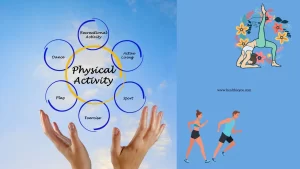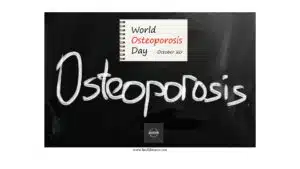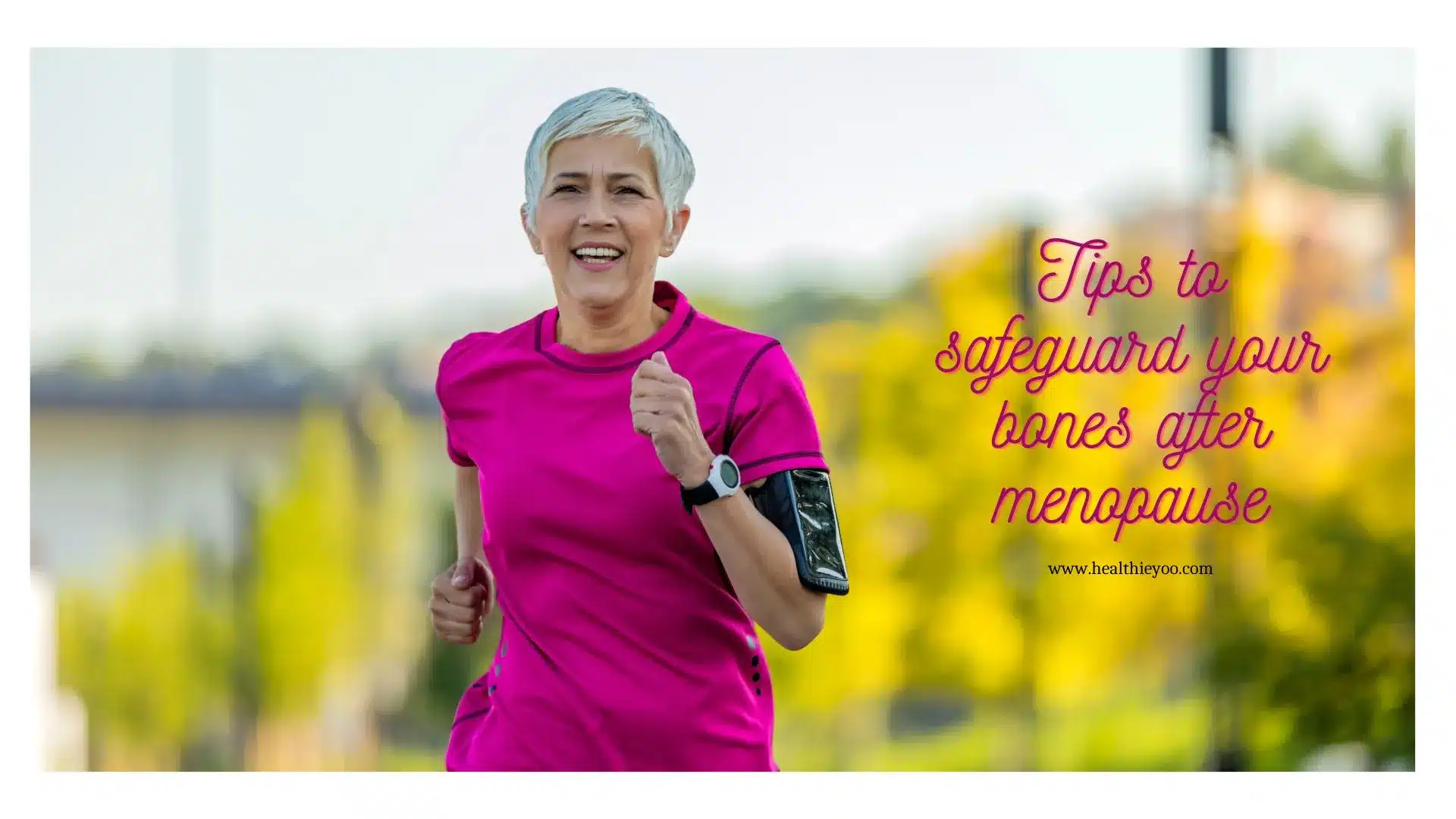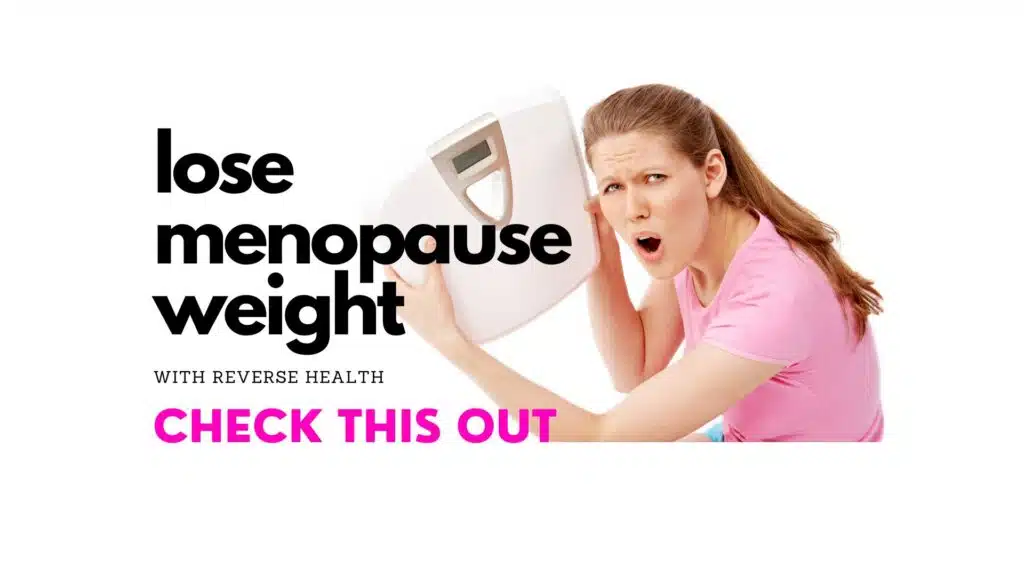Here are the 9 tips to safeguard your bones after menopause. How menopause affects bone health, the symptoms of postmenopausal bone loss, and how to prevent bone loss after menopause and tips to get strong bones for life.
Menopause is an inevitable journey for every woman, marking the end of reproductive years and the beginning of a new phase of life. This later age transition can be challenging due to whacked-up hormones. Hence, most women may experience painful symptoms such as hot flashes, vaginal dryness, lower sex drive, headaches, body aches, and moodiness.
Many women also experience long-term illnesses because of hormonal imbalances. One such problem is bone deterioration, a condition medically known as osteoporosis, common among postmenopausal women aged over 60 years.
Statistics show that every 1 in 10 menopausal women aged more than 60 is affected by bone loss globally (1).
If left untreated, bone problems may impact your overall quality of life. Not to mention, this disease may take a toll on your physical and mental well-being.
But don’t worry. There are several strategies and lifestyle changes you can apply to prevent osteoporosis in the later years, typically after menopause, and get strong bones for life.
This article explores how you can avoid bone deterioration after menopause and continue living a graceful and active life.
How Menopause Affects Bone Health
To preserve your bone health, it’s critical to understand the connection between menopause and bone loss.
The main reason behind the bone deterioration process in women at a later age is because of hormonal imbalances. The female body requires ample estrogen – the female sex hormone – to keep the systems running smoothly. Estrogen is also essential for bone strengthening.
However, with this transition to a new life phase, there’s a significant drop in estrogen levels. As a result, the body is unable to produce osteoblasts or cells that help make new bones.
Ultimately, women may experience osteoporosis – a bone degenerative disease that results in decreased bone density (2).
Osteoporosis may also increase the risk of fractures. Research shows that 1 in 2 women experiences postmenopausal fractures, usually in the first few years after menopause, because of osteoporosis. Hence, it is important to focus on preventative strategies for avoiding bone loss and taking steps to get strong bones for life.
Symptoms of Postmenopausal Bone Loss
You may notice several indications if you have bone degenerative disease after menopause. As per Mayo Clinic, the most common symptoms of postmenopausal bone disease are (3):
- Persistent upper/lower back pain
- Joint aches
- Curved posture
- Bone weakness
- Being prone to frequent fractures
- Stooped height as you age
It’s important to seek treatment for bone degenerative diseases at the right time to avoid the risk of fractures, as accidental bone damage could even be fatal as you age.
How to Prevent Bone Loss After Menopause and get Strong Bones for Life?
Now that you know the link between menopause and bone deterioration and the signs to watch out for, here are some actionable tips to reduce the risk of bone loss as you age.
1. Prioritize Your Calcium Intake
According to experts, your nutritional needs before and after menopause are different. As you age, you may require more nutrients, typically calcium, to improve bone density.
As per John Hopkins, women require daily 1000mg of calcium before menopause. Later on, you may need to push up the daily calcium intake to 1200 mg (4).
Calcium is a cornerstone of bone strengthening and development at every age. To help prevent bone loss at a later age, make it a priority to include plenty of calcium-rich sources of food in your daily diet.
These may include dairy products such as low-fat yogurt, cheese, and milk or vegan-friendly fortified foods like fortified cereals and plant-based milk alternatives. Also aim to add leafy greens such as kale, collard greens, or spinach to your routine diet.
Besides eating calcium-rich foods, also discuss taking calcium supplements with your doctor to meet your daily requirements after reaching the 40s.
2. Increase Vitamin D Intake
Alongside calcium, you may also need adequate vitamin D to strengthen the bones. Vitamin D plays an important part in helping absorb calcium efficiently.
However, vitamin D deficiency has become significantly common across the world, usually in the elderly.
Research shows that about 70% of the women reported having low vitamin D levels after menopause (5).
Postmenopausal women, especially, are at a high risk of developing vitamin D deficiency. The main reason is that as you age, your body naturally struggles with proper vitamin D absorption, even if you get sufficient sunlight exposure.
Hence, you may need to take vitamin D supplements to meet the daily intake requirements.
Experts also advise adding vitamin D-rich foods to your daily diet including fatty fish like salmon or mackerel, fortified cereals, mushrooms, egg yolk, liver, yogurt, cheese, and soy milk.
3. Engage in Weight-Bearing Exercises
A sedentary lifestyle may wreak havoc on your overall well-being. This is why most women often engage in daily exercise routines to alleviate early perimenopause signs.
Did you know that weight-bearing exercises are also specifically useful in preventing bone-related problems after menopause?
Regular exercising isn’t just a healthy activity to maintain your weight. It’s also critical to strengthen your bones. Moderate-intensity activities such as jogging, running, dancing, and even a simple fast-paced walk are great ways to keep your joints and bones active. These physical activities may help develop more bone mass reduce and the risk of bone fractures.
According to research, if you’re more inclined toward exercise regimes suitable for the postmenopause phase, you may want to include squats, lunges, push-ups, and lumbar extensions to reduce the risk of osteoporosis (6).
Experts also advise engaging in sports or healthy chores such as swimming, tennis, volleyball, or gardening to stay physically active.
4. Quit Smoking and Limit Alcohol
Smoking is a severely unhealthy habit and can have dire consequences for your bone health. A 2020 research shows that smoking can inhibit vitamin D absorption, reduce estrogen, and accelerate bone density loss, typically in the legs (7).
It’s also integral to monitor your alcohol intake. Drinking frequently may affect bone cell development and eventually impact bone density.
Hence, avoid smoking altogether and drink moderately especially in the years after menopause to avoid the risk of osteoporosis.
5. Get Sufficient Protein
Protein is an important ingredient for building muscles and improving bone health. According to research, women over 50 should take at least 1 gram per kilogram body weight of protein daily. Some of the best sources of lean protein are poultry, tofu, fish, lentils, and nuts (8).
6. Eat More Estrogen-Rich Foods
Estrogen is one of the most important hormones needed to promote bone formation. But since menopause inhibits estrogen production, you may want to add more estrogen-rich foods to your diet including sesame and flax seeds, soy, tofu, apples, pomegranate, peaches, and green leafy vegetables.
7. Consider Hormone Replacement Therapy (HRT)
Hormone replacement therapy (HRT) is an intricate method that helps boost estrogen and progesterone levels during menopause. This process is beneficial for maintaining hormonal balance and improving your quality of life.
HRT may also be a useful therapy for strengthening your bones and increasing bone density. It’s an excellent approach to minimize the risk of fractures at a later age.
Keep in mind that while HRT has numerous pros, there may be side effects in some cases, such as bleeding, rashes or skin irritation, nausea, blood clots, and the risk of breast cancer. Luckily, most of these side effects diminish on their own within three to four months (9).
Still, practice caution while going for HRT. Discuss the benefits and risks HRT may pose per your medical history with your doctor.
8. Drink Alkaline Water
You might have come across various health benefits of drinking alkaline water. Per research, one of the most amazing benefits of drinking alkaline water after menopause is that it helps retain calcium by limiting its excretion through urine (10). This is helpful in maintaining bone density, particularly in the spine region. Ultimately, it can reduce the risk of getting spinal fractures at a later age.
9. Take More Magnesium
Research also shows that having a diet rich in magnesium can have incredible effects on strengthening the bones after menopause (11). You may want to add more magnesium-rich food sources to your diet such as leafy greens, avocado, whole grain items, bananas, and nuts like cashews. After discussing with your doctor, you may also take magnesium supplements daily to improve bone density.
Conclusion
Menopause may be a challenging journey but you can manage the rough symptoms by making a few healthy tweaks in your lifestyle and diet. Taking care of your bone health and getting strong bones for life is a vital aspect of this transition. By following the practical tips mentioned above, you can significantly reduce the risk of bone deterioration and fractures at a later age. Prioritize your intake of essential nutrients such as calcium, magnesium, and vitamin D. Stay physically active by engaging in weight-bearing exercises or taking a walk every day. Invest in your bone health so you can thrive in the years to come and continue living a graceful life.
Sources
- https://www.endocrine.org/patient-engagement/endocrine-library/menopause-and-bone-loss
- https://www.medicalnewstoday.com/articles/estrogen-and-osteoporosis
- https://www.mayoclinic.org/diseases-conditions/osteoporosis/symptoms-causes/syc-20351968
- https://www.hopkinsmedicine.org/health/conditions-and-diseases/staying-healthy-after-menopause
- https://www.pharmacytimes.com/view/vitamin-d-deficiency-widespread-effects-in-postmenopausal-women
- https://www.ncbi.nlm.nih.gov/pmc/articles/PMC6429007/
- https://pubmed.ncbi.nlm.nih.gov/31350204/
- https://pubmed.ncbi.nlm.nih.gov/25482487/
- https://www.guysandstthomas.nhs.uk/health-information/hormone-replacement-therapy-hrt/side-effects-hrt
- https://www.ncbi.nlm.nih.gov/pmc/articles/PMC8408322/
- https://www.healthline.com/nutrition/magnesium-for-menopause
Related Posts

Strength in Change: Harnessing the Power of Exercise in Menopause

Physical Activity: The Key to a Longer and Healthier Life!

Provitalize Reviews, Ingredients, Side Effects – Does This Thermogenic Probiotic Work?






